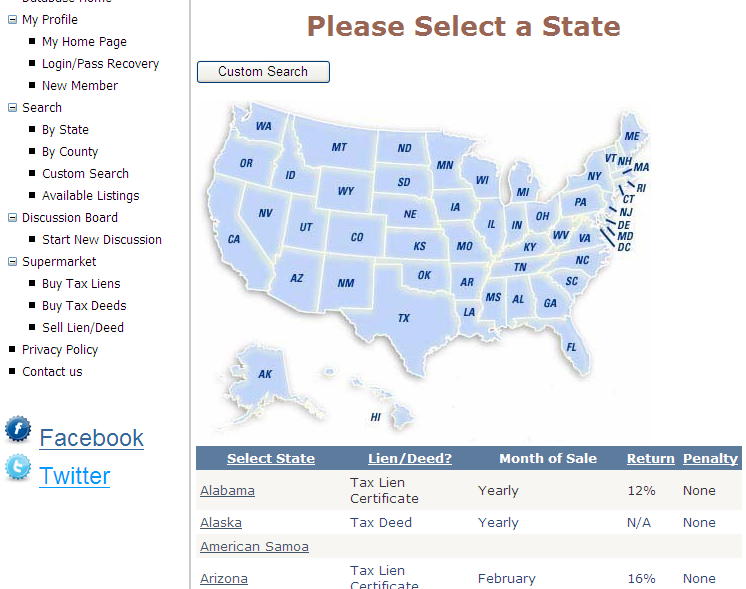All Categories
Featured
Table of Contents
Tax lien investing can provide your profile direct exposure to property all without having to really have home. Specialists, nonetheless, state the procedure is complicated and advise that novice investors can conveniently get melted. Right here's every little thing you require to understand about buying a tax lien certification, consisting of just how it functions and the dangers included.
The notice typically comes before harsher activities, such as a tax levy, where the Internal Earnings Service (IRS) or local or municipal governments can actually seize someone's residential property to recover the financial debt. A tax lien certification is produced when a homeowner has actually stopped working to pay their tax obligations and the neighborhood federal government issues a tax lien.
Tax obligation lien certifications are commonly auctioned off to capitalists seeking to profit. To recuperate the overdue tax obligation bucks, municipalities can then market the tax lien certification to personal financiers, that care for the tax obligation costs for the right to collect that money, plus interest, from the homeowner when they eventually pay back their balance.
How To Tax Lien Investing
enable the transfer or project of delinquent actual estate tax liens to the economic sector, according to the National Tax Lien Association, a nonprofit that represents federal governments, institutional tax obligation lien capitalists and servicers. Below's what the process appears like. Tax obligation lien capitalists need to bid for the certificate in a public auction, and just how that process functions depends on the details municipality.
Contact tax obligation officials in your location to ask exactly how those overdue taxes are accumulated. Public auctions can be on the internet or face to face. In some cases winning proposals most likely to the financier going to pay the least expensive rates of interest, in a technique called "bidding down the rates of interest." The municipality establishes a maximum rate, and the prospective buyer offering the lowest rates of interest below that maximum wins the public auction.
Other winning proposals most likely to those who pay the highest cash money amount, or premium, above the lien quantity. What takes place next for investors isn't something that occurs on a stock market. The winning prospective buyer has to pay the whole tax obligation costs, including the delinquent financial debt, passion and charges. The investor has to wait until the building owners pay back their whole balance unless they do not.
While some investors can be awarded, others could be captured in the crossfire of challenging policies and technicalities, which in the most awful of conditions can lead to large losses. From a mere profit viewpoint, a lot of capitalists make their money based on the tax lien's rates of interest. Rate of interest differ and depend upon the territory or the state.
Profits, nevertheless, do not constantly total up to yields that high throughout the bidding procedure. In the end, many tax liens purchased at public auction are offered at prices in between 3 percent and 7 percent nationally, according to Brad Westover, executive supervisor of the National Tax Lien Association. Prior to retiring, Richard Rampell, previously the primary exec of Rampell & Rampell, an audit firm in Hand Coastline, Florida, experienced this firsthand.
Tax Lien Investing Basics
At initially, the partners did well. However after that huge institutional financiers, including financial institutions, hedge funds and pension funds, chased those higher yields in public auctions around the nation. The larger capitalists assisted bid down rates of interest, so Rampell's team wasn't making significant cash any longer on liens. "At the end, we weren't doing far better than a CD," he claims - best book on tax lien investing.
However that hardly ever happens: The tax obligations are generally paid prior to the redemption day. Liens also are first in line for settlement, also before mortgages. Nevertheless, tax liens have an expiry day, and a lienholder's right to seize on the property or to gather their financial investment expires at the exact same time as the lien.
"Often it's six months after the redemption period," Musa says. "Don't believe you can simply acquire and ignore it." Specific financiers who are taking into consideration investments in tax obligation liens should, above all, do their homework. Specialists recommend staying clear of residential or commercial properties with environmental damage, such as one where a gasoline station dumped dangerous material.
Investing In Real Estate Tax Lien
"You must actually recognize what you're purchasing," claims Richard Zimmerman, a companion at Berdon LLP, an accounting firm in New York City. "Understand what the residential or commercial property is, the area and values, so you don't buy a lien that you won't have the ability to gather." Would-be investors need to likewise examine out the property and all liens against it, as well as current tax sales and sale rates of similar properties.
Maintain in mind that the details you locate can frequently be dated. "People obtain a list of homes and do their due persistance weeks prior to a sale," Musa states. "Fifty percent the buildings on the list may be gone because the tax obligations make money. You're losing your time. The closer to the day you do your due persistance, the better.
Investing In Secured Tax Lien Certificates

Westover claims 80 percent of tax obligation lien certifications are sold to participants of the NTLA, and the firm can usually pair up NTLA participants with the appropriate institutional investors. That may make handling the process less complicated, particularly for a novice. While tax lien financial investments can offer a charitable return, be aware of the fine print, information and regulations.
"Yet it's made complex. You have to recognize the information." Bankrate's added to an upgrade of this story.
Property tax liens are a financial investment niche that is forgotten by the majority of financiers. Acquiring tax obligation liens can be a lucrative though relatively high-risk service for those who are knowledgeable concerning real estate. When individuals or organizations stop working to pay their real estate tax, the districts or other government bodies that are owed those tax obligations put liens against the properties.
Tax Lien Redemption Period
These cases on collateral are also traded amongst financiers who want to create above-average returns. Through this procedure, the district gets its taxes and the capitalist gets the right to collect the quantity due plus passion from the debtor. The procedure seldom ends with the financier seizing possession of the home.
Liens are cost auctions that occasionally include bidding process wars. If you need to seize, there might be various other liens against the residential property that maintain you from taking belongings. If you obtain the property, there might be unexpected costs such as repair work or even forcing out the existing occupants. You can likewise spend indirectly through building lien funds.
It efficiently binds the property and prevents its sale up until the owner pays the taxes owed or the home is confiscated by the creditor. When a landowner or homeowner falls short to pay the tax obligations on their residential or commercial property, the city or county in which the building is located has the authority to position a lien on the residential property.
Building with a lien affixed to it can not be offered or refinanced till the tax obligations are paid and the lien is gotten rid of. When a lien is provided, a tax lien certification is developed by the municipality that reflects the amount owed on the building plus any type of rate of interest or fines due.

It's approximated that an added $328 billion of real estate tax was evaluated throughout the united state in 2021. The pattern proceeds. Tax obligations on single-family homes were approximated to climb a standard of 3.6% in 2022, to a total of $339.8 billion, and by 6.9% in 2023, to $363.3 billion. It's difficult to analyze across the country residential property tax lien numbers.
Table of Contents
Latest Posts
Back Taxes Homes
Otc Tax Liens
Tax Defaulted Properties Sale
More
Latest Posts
Back Taxes Homes
Otc Tax Liens
Tax Defaulted Properties Sale